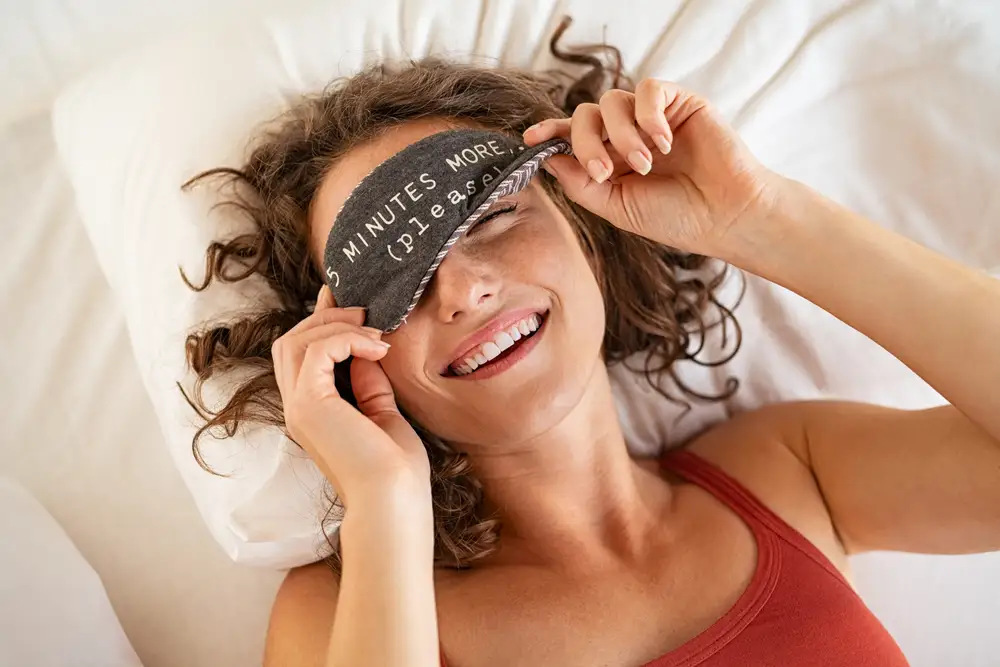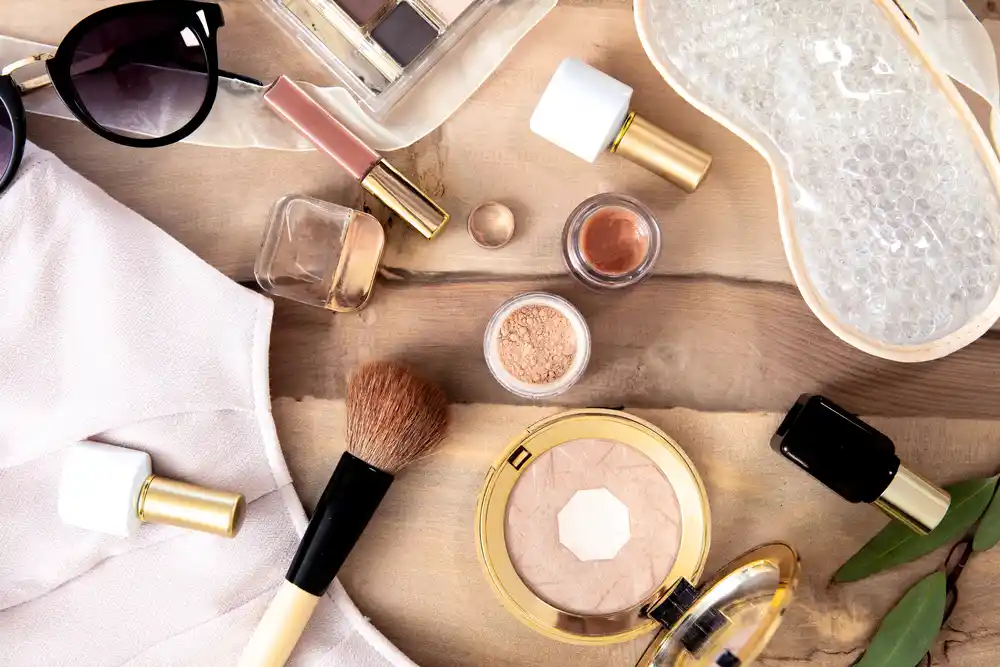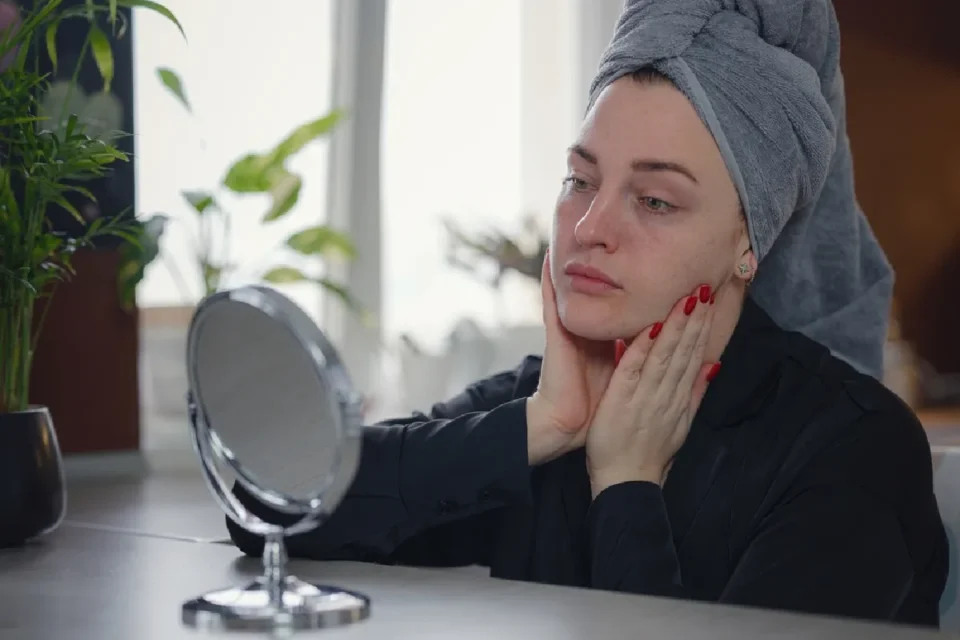Feeling stressed? Join the club. Lockdown life aside, research suggests approximately 55% of Americans experience stress during the day — significantly higher than the global average of 35%. That said, how is your skin looking?
As long as we’re talking statistics, according to the American Academy of Dermatology Association, Acne is the most common skin condition in the United States, affecting up to 50 million Americans annually — but how much of that is due to stress?
Contrary to what you may think, the connection between acne and stress is misunderstood. Experts say that feeling frazzled worsens the condition, but it’s not the root cause of acne. Still, stress-related breakouts appear as pesky pimples that appear simultaneously in your T-zone (forehead, nose, chin) and are often accompanied by oiliness — but a cleanser alone won’t cut it.
Are you apprehensive about pimple pressure when stress and anxiety kick in? We’ve got you. Here are six tips for fighting stress and anxiety so you can embrace a clear and confident complexion no matter what life throws your way.
Table of Contents
How to Get Rid of Stress Acne
There’s no one-size-fits-all approach to treating stress acne, so consider seeking the advice of a licensed skincare professional to ensure you’re using the correct products and ingredients for your skin type. However, you don’t need a pro to make a few lifestyle changes to help control stress-related breakouts.
1. Oral Medications
If stress-related acne becomes moderate-to-severe, a doctor may suggest an oral medication to keep breakouts at bay. Popular options include:
- Antibiotics: While they may be used to treat your sore throat or toothache, antibiotics are also temporarily used to control acne-causing bacteria. They should only be used for a short period of time to prevent resistance. The most popular antibiotics used in this case are tetracycline (minocycline, doxycycline) or macrolides, such as erythromycin or azithromycin.
- Anti-androgen Agents: If antibiotics aren’t working for women or young girls, spironolactone (Aldactone) may be used to block the adverse effects of androgen hormones on oil-producing glands.
- An Oral Contraceptives Combo: The FDA approved the use of four combined oral contraceptives that combine progestin and estrogen for acne in women. The most common are Ortho Tri-Cyclen 21 and Yaz, among others. It may take a few months to see results.
- If moderate or severe acne hasn’t responded to other treatments, a doctor may prescribe oral medications like Amnesteem and Claravis (vitamin A derivatives).
2. Topical Medications
While a solid skincare routine with breakout-banishing ingredients is vital for controlling acne in any form (more on that in a bit), more potent topical medications a dermatologist prescribes can help support more severe breakouts. For example:
- Retinoids: Topical gels, lotions, and creams containing retinoic acids or tretinoin are often prescribed for moderate acne. A few popular examples include Retin-A, Differin, and Tazorac. These types of medications are applied in the evening, starting three times a week and gradually increasing to daily as the skin becomes more tolerant.
- Azelaic Acid: Studies have found that azelaic acid is a triple threat against acne because it has an antimicrobial effect, is anti-inflammatory, and can manage discoloration associated with some acne types. A 20% cream or gel is as effective when used twice daily.
- Topical Antibiotics: These help eliminate bacteria while reducing redness and inflammation. Combining them with benzoyl peroxide is recommended to decrease the risk of antibiotic resistance.
3. Lifestyle Changes
We understand that life can throw you some curveballs, and adopting the perfect schedule can be challenging. However, two key lifestyle changes can help control your stress levels.
Get Enough Sleep:
Getting ample shuteye is one key to reducing stress-related breakouts—adults should get seven or more hours of sleep each night. While you sleep, your body produces the hormone melatonin, stimulating your immune system and safeguarding against bacterial infections like acne. Sleep deprivation is linked to hormonal imbalances that cause a spike in oil production.
 Set yourself up for sleeping success by winding down before bed with a ritual like sipping herbal tea. Ensure the room is at the right temperature (approximately 65 degrees Fahrenheit) and dark (darkness stimulates melatonin, so you fall asleep faster). Also, always ensure you sleep on clean sheets and pillowcases to prevent breakouts from dead skin cells and bacteria.
Set yourself up for sleeping success by winding down before bed with a ritual like sipping herbal tea. Ensure the room is at the right temperature (approximately 65 degrees Fahrenheit) and dark (darkness stimulates melatonin, so you fall asleep faster). Also, always ensure you sleep on clean sheets and pillowcases to prevent breakouts from dead skin cells and bacteria.
Eat the Right Foods
The best diet to promote a clear complexion includes foods rich in omega-3 fatty acids, such as fish, nuts and seeds, and plant oils. Studies have shown they have an anti-inflammatory effect that can help acne. Avoid foods like sweets, white bread, rice, and pasta that cause a spike in sugar, which increases oil-producing hormones.
How to Prevent Stress Acne
Preventing stress acne doesn’t have to feel impossible, especially if you incorporate these best practices into your routine.
4. Have a Consistent Skincare Routine
While there are several options for treating acne, you must speak to your doctor when crafting a skincare routine because you can’t mix strong prescription medications like retinol with ingredients like benzoyl peroxide.
- Wash your face with a mild cleanser in the morning, at night, and after a sweat session. You can also use a formula with an acne-fighting ingredient like salicylic acid, but only if it won’t interfere with a topical medication.
- Avoid aggressive astringents and opt for a toner that hydrates, balances, and improves the skin’s clarity.
- Use an acne resurfacing treatment that gently exfoliates the skin instead of a mechanical scrub that can worsen breakouts.
- Don’t skip moisturizer just because your skin is oily. If the skin is stripped of its natural oils, it produces more oil to compensate for the loss — bring on the breakouts! The secret is to use a lightweight moisturizer that balances the skin and counteracts any potential dryness from acne treatments.
- Many acne-fighting ingredients make your skin more sensitive to the sun, so wear an oil-free full-spectrum sunscreen during the day. Sun exposure can also exacerbate acne scars, all the more reason to apply an SPF of 30-plus every two hours and after sweating or swimming.
- Don’t pick at your blemishes! Doing so can lead to scarring and additional breakouts due to the spread of bacteria.
5. Wear the Right Cosmetics
Most experts would tell you to forgo cosmetics when dealing with acne so the skin can breathe and not worsen breakouts. However, sometimes you may prefer having coverage rather than being fresh-faced. The key is choosing vegan makeup that’s cruelty-free and formulated without parabens, phthalates, sulfates, and fragrance. Look for products that are allergy-tested, meaning they’re less likely to cause an allergic reaction and intensify breakouts.
 6. Reduce Stress
6. Reduce Stress
Cortisol, the stress hormone, increases oil production and inflammation, leading to acne flare-ups. That said, it’s crucial to consciously reduce stress to improve your mental health and prevent stress-related breakouts. Here are a few things you can try:
- Adopt a regular exercise routine that you enjoy
- Meditate at a studio or with an app
- Try breathing exercises when you feel stress is building up
- Engage in a hobby that brings you peace and pleasure
- Take the time to cook a favorite meal
- Avoid eating your meals at your desk
- Spend time outdoors in nature
- Avoid multitasking and focus on one thing at a time
- Practice mindfulness
- Watch an uplifting movie
- Blast your favorite tunes
- Take a warm bath
- Read an actual book — not something on your tablet or computer
The best way to conquer stress-related breakouts is to reduce your stress levels and make lifestyle changes that set your skin up for success. Commit to a solid skincare routine and, if necessary, work with a doctor to ensure you use the correct products and ingredients for your acne and skin type. You’ve got this!


